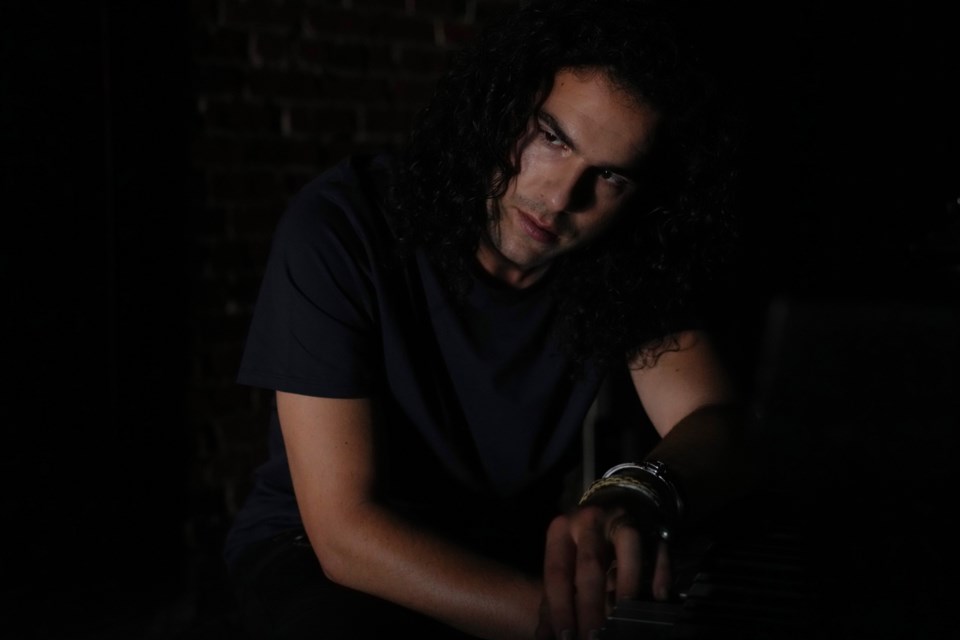TORONTO — Jeremy Dutcher saw the risks of singing in English on his second album.
As a classically trained musician known for using his voice to draw attention to an endangered Indigenous language, some might've seen him welcoming a non-Indigenous language onto his sophomore album "Motewolonuwok" as a betrayal of his roots.
“You never want to be seen (as) stepping away from your true intent,” the 32-year-old recently explained after rehearsals in a Toronto music space.
“You want to stay on your path."
Five years ago, his debut “Wolastoqiyik Lintuwakonawa” elevated Dutcher to the national stage when it won the 2018 Polaris Music Prize. The album showcased the operatic tenor singing with century-old recordings of his elders made in Wolastoqey, the language of the Wolastoqiyik people.
Dutcher won a Juno award, collaborated with Buffy Sainte-Marie and Yo-Yo Ma, and was invited to sing at Joni Mitchell's 75th birthday party.
Soon people were asking how he might follow on such a distinctive first album.
"The reason I started creating my own music was because I couldn’t go to the radio, turn it on and hear songs in our own language," he reasoned.
"To do it in English felt like, 'Oh I guess you’re changing your course.'"
Yet Dutcher knew he'd eventually have to make a decision.
More than 100 recordings of his ancestors singing in Wolastoqey exist at the archives in the Canadian Museum of History in Gatineau, Que., he said. Dutcher used 11 of them on his debut.
“I could’ve made over three other archive albums,” he said. “But I didn’t want to do that (because) you get stuck in one story.”
Dutcher, who grew up partly in the Tobique First Nation in New Brunswick, saw the possibility of his sophomore effort being a "more direct offering to people" — in particular, the English-speaking audience that discovered his first album.
It also presented the opportunity to link two very different languages, often within a breath of each other.
"They’re coming from separate families, so finding a pathway between them was a challenge, but also an exciting artistic constraint," said the musician, who now lives in Montreal.
"It’s a trip for me to still hear it."
“Motewolonuwok," which was released earlier this month, finds Dutcher in what he calls a liminal space as he confronts the nuances of the modern Indigenous experience. He describes the album as "sorrow, grief, joy and beauty all up against each other" as it considers the heavy weight of recent times.
In the years since his debut album, the Indigenous community has been shaken by the discovery of unmarked graves at residential schools, faced a worsening housing crisis on reserves and seen youth suicide rates skyrocket.
Dutcher said the album's inspiration started with the work of Cherokee poet Qwo-li Driskill and their words of bearing witness, celebration and healing.
"Skicinuwihkuk," the first track, sees Dutcher singing about land sovereignty.
His voice quivers on the song "Take My Hand" as he considers the meaning of lineage: "All of the ghosts that we sing back to," he sings. "Teach us our way of listening."
"Sakom" was recorded with a 12-voice choir improvising the harmony as Dutcher sang in Wolastoqey.
"It was an acknowledgment that we do nothing alone," he explained of the song, one of the clearest examples of how Dutcher sees the relationship between Canada and its Indigenous Peoples.
"As a country, we’re trying to understand our collective history a little more closely," he said.
"And it’s good because we’re at least coming to hold that story together, rather than it being two completely different realities.
"I’m hopeful that we’re in a time of shift and change — that feels evident," he added.
Dutcher is doing whatever he can to capture this moment.
Recently, he was commissioned to contribute music to "Pisuwin," billed as the first-ever ballet based on a Wolastoq tale. The Atlantic Ballet performance tours Newfoundland, Prince Edward Island and New Brunswick through the end of November.
The musician also played a series of fundraiser concerts to assist his mother Lisa Perley-Dutcher in her efforts to establish the first-ever Wolastoqey immersion preschool, located in Fredericton.
Dutcher is confident the small group of community leaders teaching the new generation of Wolastoqey speakers will reaffirm some of the language's values of unity and respect for the land.
"It’s potentially revolutionary," he said.
"I’m encouraged that now, language — not just Wolastoqey, but a lot of Indigenous languages — are coming forward and (getting) a lot more space to breathe."
Dutcher said that's how he measures his success.
“The awards, they come and go," he said.
“But I don’t take any of these platforms for granted. I don’t know how long they’re going to let me do this. So (my thinking is) just get it out while you can.”
This report by The Canadian Press was first published Oct. 12, 2023.
David Friend, The Canadian Press
Note to readers: This is a corrected story. A previous version credited the words of Cherokee poet Qwo-li Driskill as appearing on the first track of the album. In fact, Dutcher says Driskill's work inspired the album.



